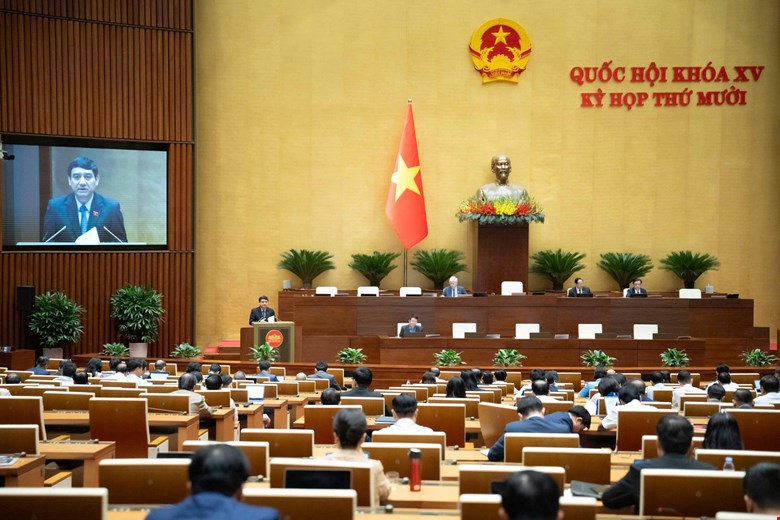Accordingly, 3 projects were discussed including: Draft Law amending and supplementing a number of articles of the Law on Education; Draft Law on Higher Education (amended); Draft Law on Vocational Education (amended).

In addition, the National Assembly also discussed the Draft Resolution of the National Assembly on specific mechanisms and policies to implement Resolution No. 71-NQ/TW dated August 22, 2025 of the Politburo on breakthroughs in education and training development.
After that, the Minister of Education and Training will explain and clarify a number of issues raised by National Assembly deputies.
The working session on these contents will be broadcast and broadcast live.
The draft Law amending and supplementing a number of articles of the Law on Education is being considered and commented on by the National Assembly at the 10th Session, the 15th tenure, adding many new breakthrough regulations: Tuition exemption policy; unifying textbooks; innovating training models and digital transformation; managing diplomas and certificates; preferential investment policies for education, etc.
The draft Law on Higher Education (amended) also has many new breakthrough points such as: Institutionalizing the policy of strengthening the leadership role of the Party organization; abolishing the Council of public schools (except for schools with international agreements) and moving towards the model of Party Committee Secretary and Head of the grassroots level; enhancing autonomy associated with accountability; innovating the appointment mechanism and responsibility of the head,....
Similarly, the draft Law on Vocational Education (amended) is built to complete the legal corridor, ensure the formation of a synchronous, unified legal system on vocational education (VET), in line with the new development context of the country and the requirements of international integration, thereby improving the quality of VET.
The draft Law has many new points such as: Supplementing vocational secondary schools; perfecting the education system; promoting decentralization, delegation of authority, improving the effectiveness of education system governance; promoting innovation and improving the quality of vocational education, etc.











